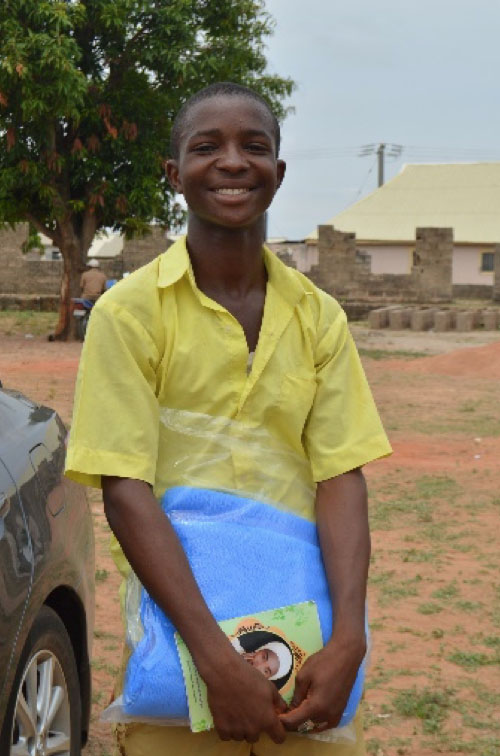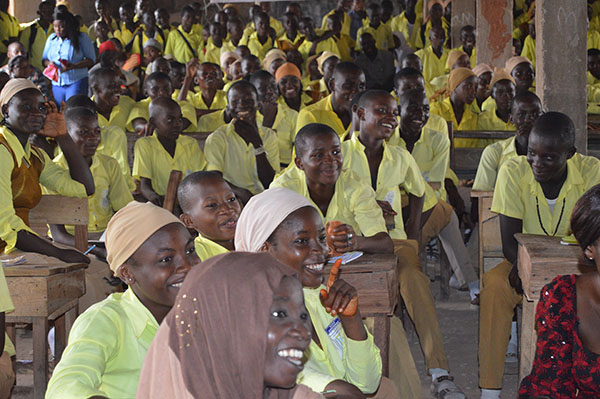
After seeing the show, 9th grader Nurudeen Abubakar, pledges to keep safe from malaria by always sleeping under a mosquito net.
John and Victoria fight about him not coming home. Caroline informs Andy that she is pregnant. Sanitation inspectors close Madam Labembe’s bar. Funke demands money from her father to further her education.
Life on Newman Street—the hit Nigerian TV drama—can be hard. Set in a modern day urban slum, the story follows the lives of relatable characters as they struggle to realize their dreams and overcome everyday struggles. But Newman Street is more than just a TV show: It is a powerful tool equipping Nigerians with the ability to make decisions on social and health issues like malaria.
When teacher Chongo and his wife Kirot lose a child to malaria, viewers learn about the devastating consequences of this disease. Determined not to lose another child, Kirot seeks advice from Dr. Sophie and convinces her husband to let their family sleep under a mosquito net. Later, when her other child develops a fever, Kirot heads straight for the clinic.
Leveraging the popularity of Nigerian cinema and TV’s emotional power, Newman Street is a PMI-funded social and behavior change intervention that resonates. After watching the show, teens in Nigeria said, “This movie has opened my eyes to where I should go to when I have malaria. I will now take myself and my family to the hospital when malaria symptoms arise.” Nurudeen Abubakar, a 9th grader adds, “I learnt today that malaria kills a lot of people like Andy in the film. I will start using the mosquito net immediately and tell my junior brothers to do so too.”
TV has become an important platform for providing lifesaving health messages in Nigeria. PMI helped sponsor this 26-episode entertainment education TV series as part of a mass media package that included a national malaria theme song, weekly radio show, and 60-second radio spots to increase awareness and uptake of key malaria interventions.
The impact of mass media like TV can be powerful. Research on PMI’s mass media intervention clearly showed the more mass messages people heard, the more likely they were to take action against malaria. For example, 83 percent of those who were exposed to three or more mass media messages slept under a mosquito net compared to 38 percent of those not exposed to any messages, 48 percent of those exposed to one, and 66 percent of those exposed to two.
Newman Street is also going beyond the screen and directly into the community. Malaria-related clips from the drama are screened during community dialogues or school visits—reaching thousands more viewers and providing targeted malaria messaging.
Looking for something meaningful, educational, and fun to watch for this year’s World TV Day? Check out Newman Street! Or on Youtube!
This story was adapted from Inspiring a Future Generation of Malaria Advocates by the Health Community and Capacity Collaboration project.


